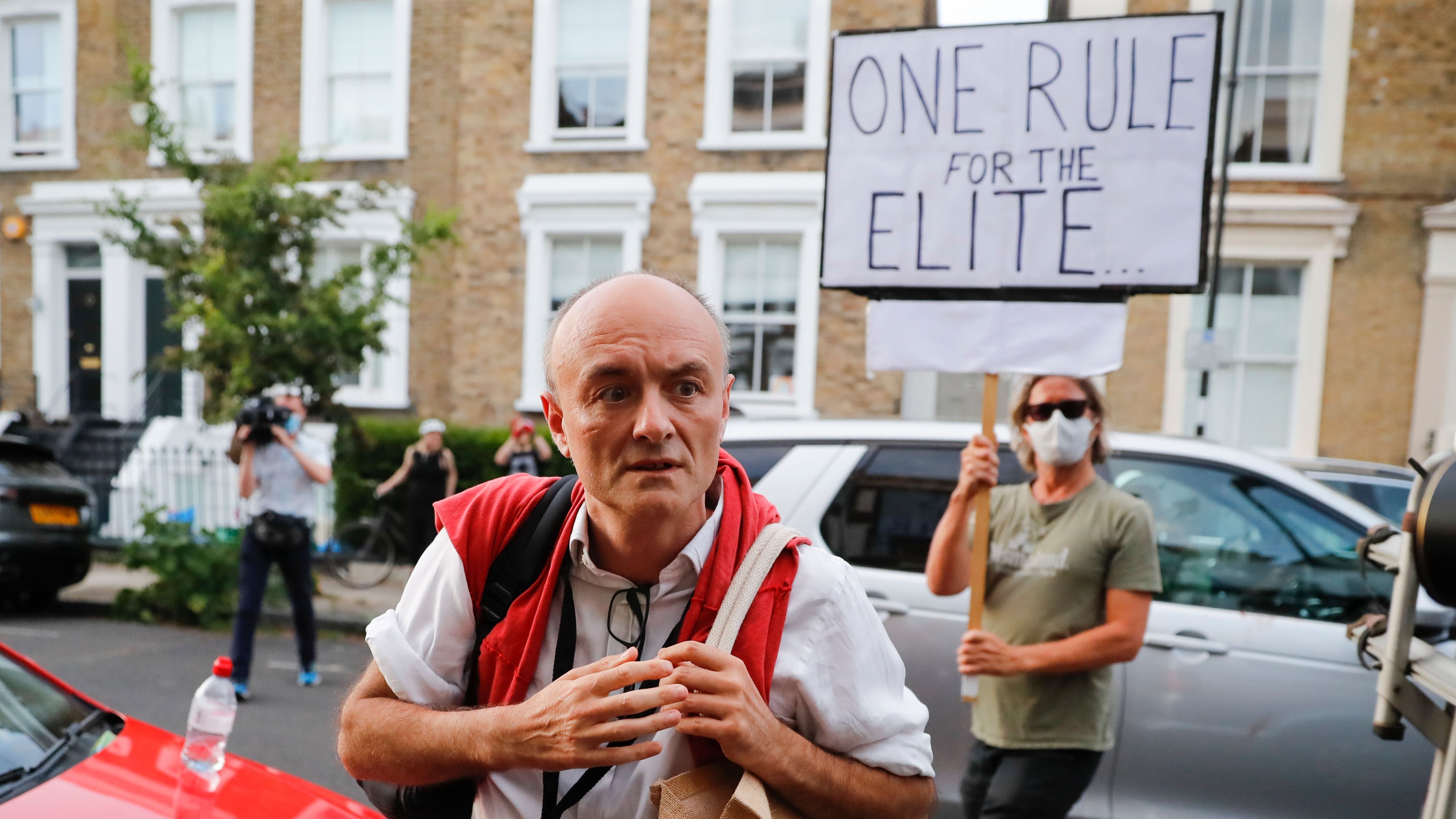Websites face fines over harmful content
Charities welcome government plans but others say they restrict free speech

A free daily email with the biggest news stories of the day – and the best features from TheWeek.com
You are now subscribed
Your newsletter sign-up was successful
Websites could be fined or blocked if they fail to tackle “online harms” such as child abuse, revenge pornography or terrorist propaganda, under new plans from the Department for Culture, Media and Sport.
Ministers are proposing an independent watchdog and a code of practice that tech companies would be legally obliged to follow. Internet bosses would be held liable for breaches, with a possible levy on the industry to fund the regulator.
Announcing the plans, Digital, Culture, Media and Sport Secretary Jeremy Wright said: “The era of self-regulation for online companies is over. Voluntary actions from industry to tackle online harms have not been applied consistently or gone far enough.”
The Week
Escape your echo chamber. Get the facts behind the news, plus analysis from multiple perspectives.

Sign up for The Week's Free Newsletters
From our morning news briefing to a weekly Good News Newsletter, get the best of The Week delivered directly to your inbox.
From our morning news briefing to a weekly Good News Newsletter, get the best of The Week delivered directly to your inbox.
The Daily Telegraph, which has campaigned for such measures, welcomed the news, saying Britain will now have “the toughest internet laws in the world” and arguing that “there is nothing draconian about wishing to protect children”.
Children's charity NSPCC also applauded the proposals. Chief executive Peter Wanless said they would mean the UK is a “world pioneer” in protecting children online.
However, Matthew Lesh, head of research at free market think tank the Adam Smith Institute, described the proposals as “a historic attack on freedom of speech and the free press,” adding that “the government should be ashamed of themselves for leading the western world in internet censorship”.
Daniel Dyball, UK executive director at trade body the Internet Association, sounded a warning about the “extremely wide” scope of the proposals.
A free daily email with the biggest news stories of the day – and the best features from TheWeek.com
Prime Minister Theresa May said the plans prove that the age of self-regulation is over. "The internet can be brilliant at connecting people across the world - but for too long these companies have not done enough to protect users, especially children and young people, from harmful content," she said.
The death of 14-year-old Molly Russell in 2017 has put the issue of online expressions of self-harm and suicide in the public eye. Her father pointed out that self-harm and suicide are widely promoted on Instagram, something he felt contributed to her killing herself.
The plans are contained in a government white paper that will now go out for a 12-week consultation.
-
 What are the best investments for beginners?
What are the best investments for beginners?The Explainer Stocks and ETFs and bonds, oh my
-
 What to know before filing your own taxes for the first time
What to know before filing your own taxes for the first timethe explainer Tackle this financial milestone with confidence
-
 The biggest box office flops of the 21st century
The biggest box office flops of the 21st centuryin depth Unnecessary remakes and turgid, expensive CGI-fests highlight this list of these most notorious box-office losers
-
 How cybercriminals are hacking into the heart of the US economy
How cybercriminals are hacking into the heart of the US economySpeed Read Ransomware attacks have become a global epidemic, with more than $18.6bn paid in ransoms in 2020
-
 Language-learning apps speak the right lingo for UK subscribers
Language-learning apps speak the right lingo for UK subscribersSpeed Read Locked-down Brits turn to online lessons as a new hobby and way to upskill
-
 Brexit-hobbled Britain ‘still tech powerhouse of Europe’
Brexit-hobbled Britain ‘still tech powerhouse of Europe’Speed Read New research shows that UK start-ups have won more funding than France and Germany combined over past year
-
 Playing Cupid during Covid: Tinder reveals Britain’s top chat-up lines of the year
Playing Cupid during Covid: Tinder reveals Britain’s top chat-up lines of the yearSpeed Read Prince Harry, Meghan Markle and Dominic Cummings among most talked-about celebs on the dating app
-
 Brits sending one less email a day would cut carbon emissions by 16,000 tonnes
Brits sending one less email a day would cut carbon emissions by 16,000 tonnesSpeed Read UK research suggests unnecessary online chatter increases climate change
-
 Reach for the Moon: Nokia and Nasa to build 4G lunar network
Reach for the Moon: Nokia and Nasa to build 4G lunar networkSpeed Read Deal is part of the US space agency’s plan to establish human settlements on the lunar surface
-
 iPhone 12 launch: what we learned from the Apple ‘Hi, Speed’ event
iPhone 12 launch: what we learned from the Apple ‘Hi, Speed’ eventSpeed Read Tech giant unveils new 5G smartphone line-up
-
 Russian agency behind US election meddling ‘created fake left-wing news site’
Russian agency behind US election meddling ‘created fake left-wing news site’Speed Read Facebook says real reporters were hired by fake editors to write about US corruption